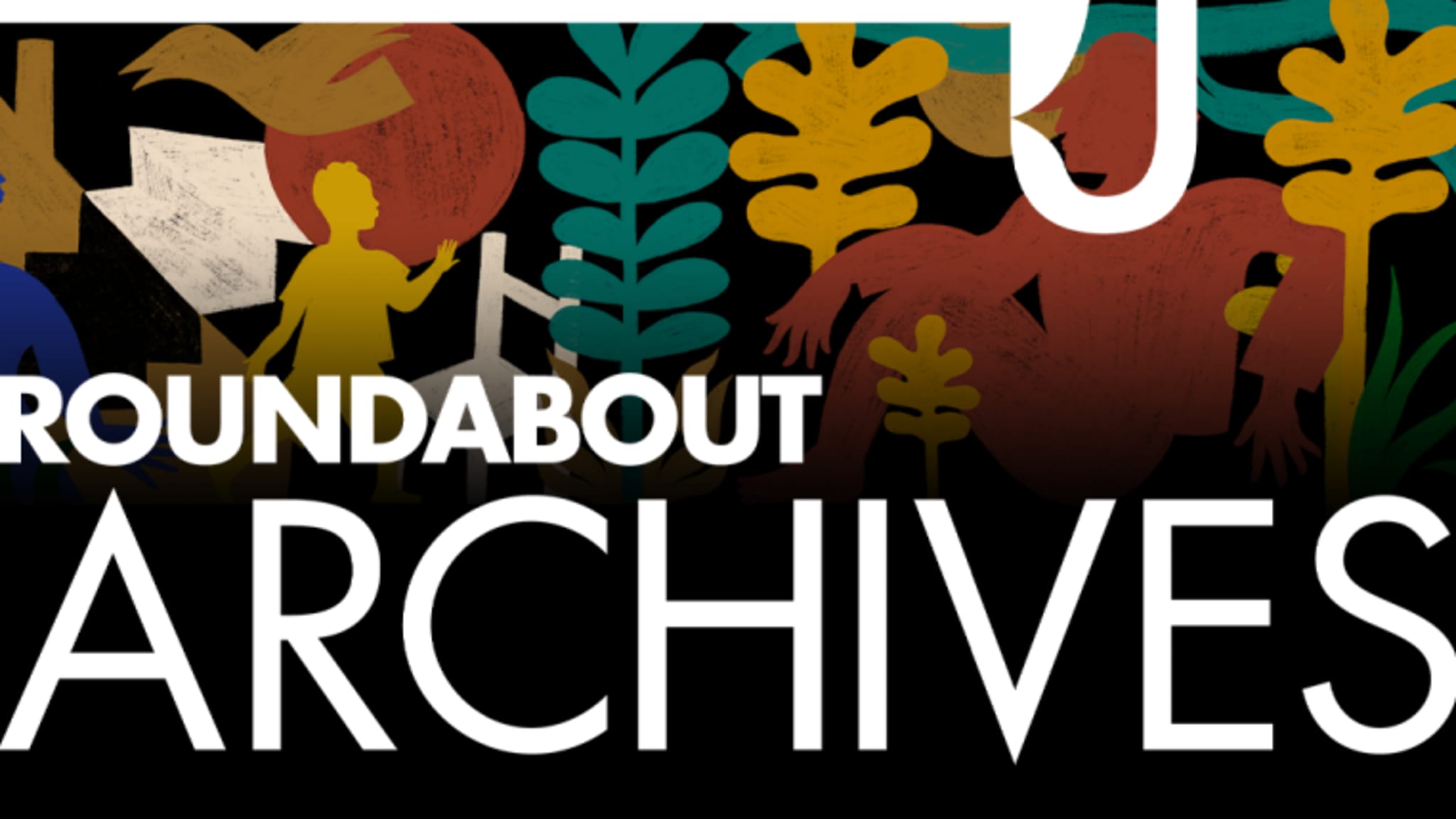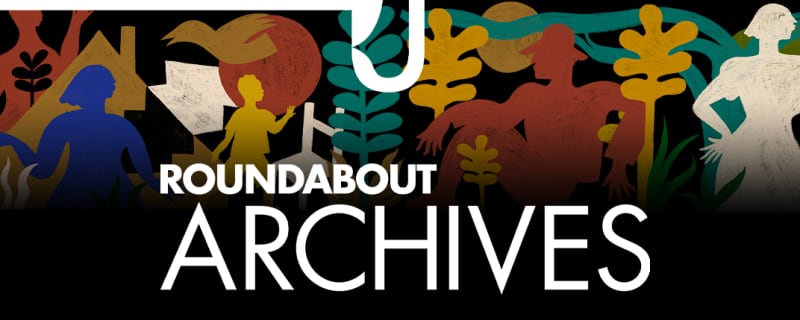Family drama is one of the touchstones of theatre, so it’s no surprise that depictions of intergenerational families are deeply woven through Roundabout’s canon.
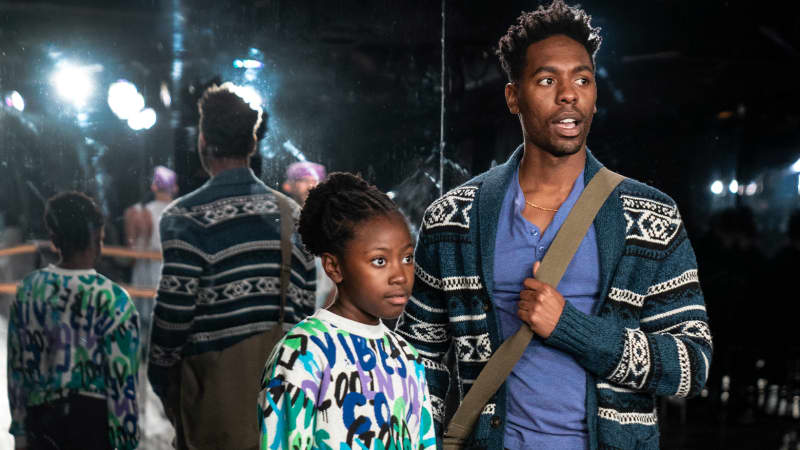
Sasha Manuel (L) and Jhardon Dishon Milton in Roundabout’s 2022 production of THE BANDAGED PLACE.
Photo by Joan Marcus.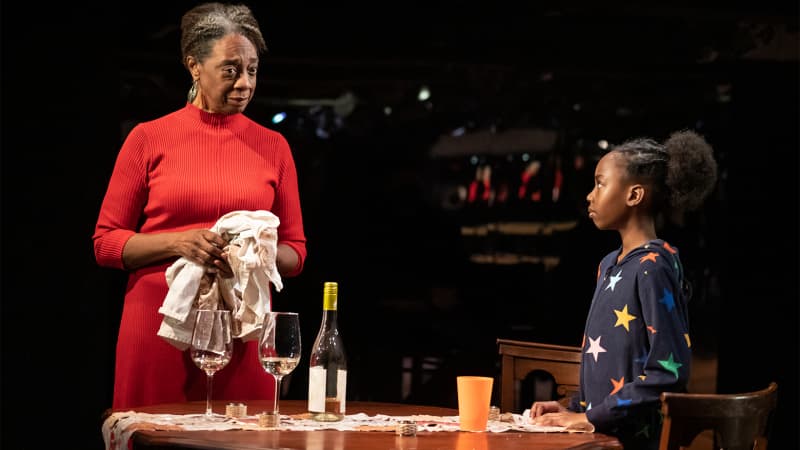
Stephanie Berry (L) and Phoenix Noelle in Roundabout’s 2022 production of THE BANDAGED PLACE.
Photo by Joan Marcus.Most recently, the bandaged place (Black Box Theatre, 2022) tells the story of Jonah (played by Jhardon Dishon Milton) and the difficult relationship he has with his grandmother, Geraldine (played by Stephanie Berry), who essentially raised him and is now raising his daughter, Ella (played by Sasha Manuel/Phoenix Noelle), while Jonah attempts to steady himself after surviving an abusive relationship. This intergenerational story provides a glimpse into modern family units, dispelling misconceptions of how “traditional” families interact and amplifying the degree to which parents and grandparents play integral roles in the lives of their offspring.
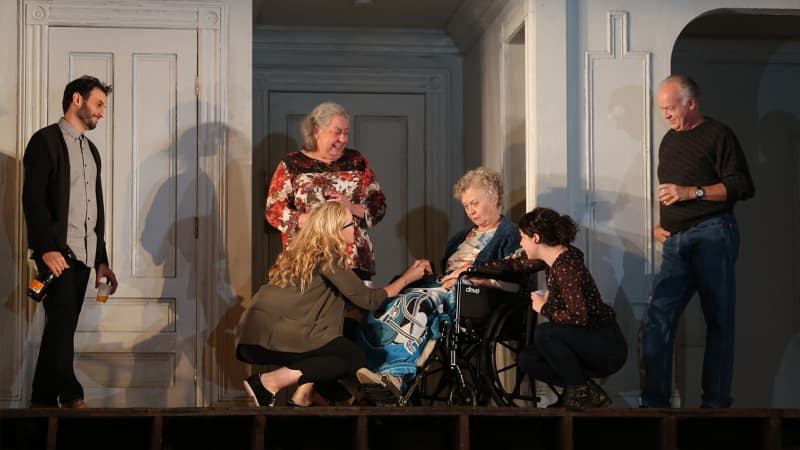
(Left to right) Arian Moayad, Cassie Beck (kneeling), Jayne Houdyshell, Lauren Klein, Sarah Steele, and Reed Birney in Roundabout’s 2015 production of THE HUMANS.
Photo by Joan Marcus.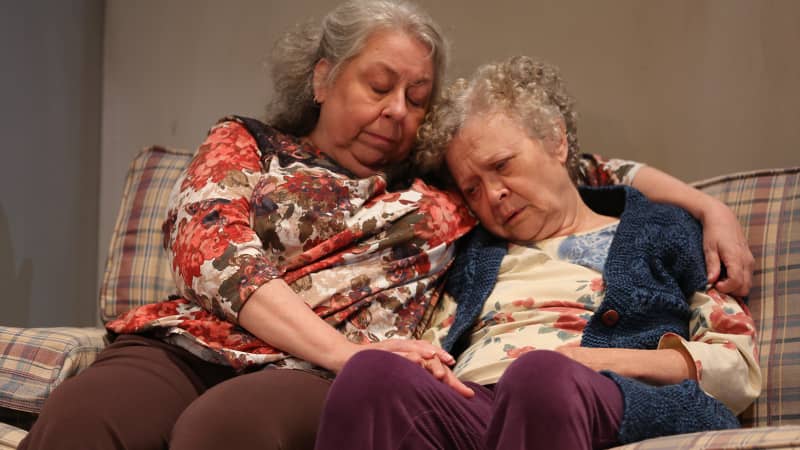
Jayne Houdyshell (L) and Lauren Klein in Roundabout’s 2015 production of THE HUMANS
Photo by Joan Marcus.The Humans (Laura Pels Theatre, 2015) also portrays three generations within a family gathered under the pretense of enjoying an innocent Thanksgiving meal but whose lives are so out of sync that the gathering unintentionally exposes raw and painful emotion, secret infidelities, sisterly competition, and family-wide conflict. Momo, the matriarch (played by Lauren Klein), has dementia and lives only on the periphery of the family, seated in a wheelchair and unable to engage, and yet an ever-present reminder of familial obligation and the realities of caring for aging parents. Sisters Aimee (played by Cassie Beck) and Brigid (played by Sarah Steele) are vying for attention from their parents (played by Jayne Houdyshell and Reed Birney) without knowing that they are working through infidelity and betrayal and need care and attention themselves.
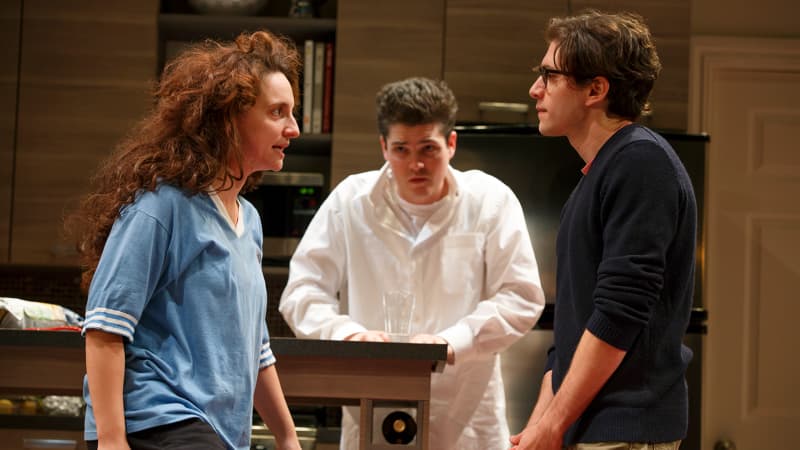
Tracee Chimo, Philip Ettinger (C), and Michael Zegen in Roundabout’s 2013 production of BAD JEWS.
Photo by Joan Marcus.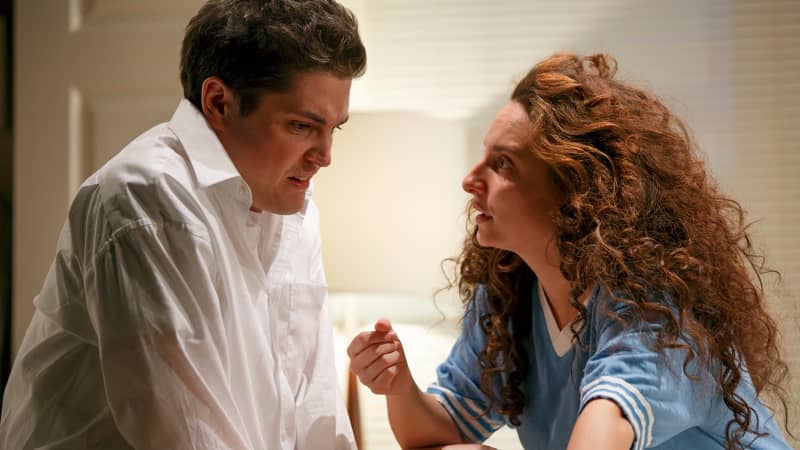
Philip Ettinger and Tracee Chimo in Roundabout’s 2013 production of BAD JEWS.
Photo by Joan Marcus.Bad Jews (Laura Pels Theatre, 2013; Black Box Theatre, 2012) takes a different approach to generational conflict by having the beloved grandfather, Poppy, of cousins Jonah (played by Philip Ettinger); Daphna (played by Tracee Chimo); and Liam (played by Michael Zegen) recently deceased. We never meet Poppy but hear of him through anecdotal stories. The cousins have a shared history and connection to Poppy, a Holocaust survivor, and each imagine that the other is processing his death in a similar manner. But because families are complex, the weekend spent together for his funeral exposes anguish and undisclosed trauma, and it becomes quite clear that the shared memories have manifest quite distinctly in each of the cousins.
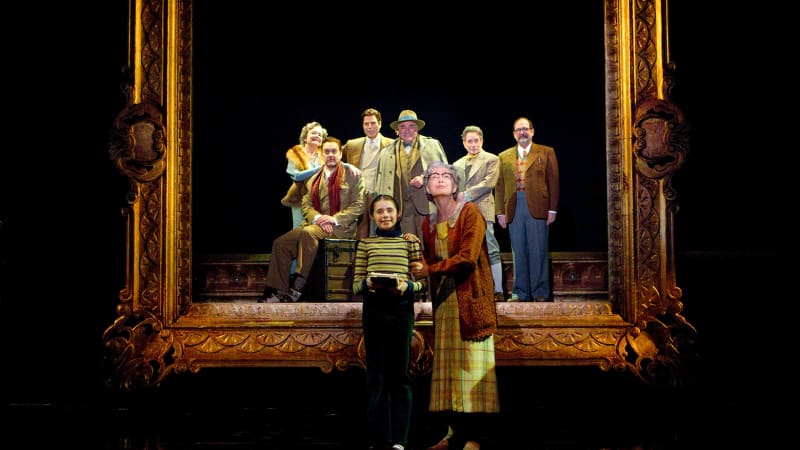
The cast of Roundabout’s 2011 production of THE PEOPLE IN THE PICTURE.
Photo by Joan Marcus.
Donna Murphy in Roundabout’s 2011 production of THE PEOPLE IN THE PICTURE.
Photo by Joan Marcus.The musical The People in the Picture (Studio 54, 2011) is an epic intergenerational tale following one woman and her family over several decades. We watch as Raisel (played by Donna Murphy), a young Yiddish theatre performer, escapes the Warsaw ghetto with her young child, Red (played by Nicole Parker), and immigrates to the United States, taking her memories and Jewish culture with her. Raisel becomes Bubbie, as Red in time becomes a mother to her own daughter, Jenny (played by Rachel Resheff). Bubbie wants to memorialize the past through stories shared with Jenny but struggles to connect with Red, who wants to leave their past in the past; their Jewish culture behind. Bubbie and Jenny bring the past to life through a shared interest in family history and tradition. By retelling her life to Jenny, Bubbie’s past and the people she knew come alive and Jenny learns about the lives of her mother and grandmother in a distant time and war-ravaged place far from the simple world they live in. This collective history shared through the generations ultimately helps Red move beyond her anger and resentment and creates a path forward for Jenny and Red to cherish their past, long after Bubbie is no longer around to remind them.
In bringing the ghosts of previous generations on stage in The Refuge Plays, Nathan Alan Davis expands on Roundabout’s exploration of the collective family experience, and sheds light on the impact of generational trauma and celebration.
Published on October 10, 2023.

